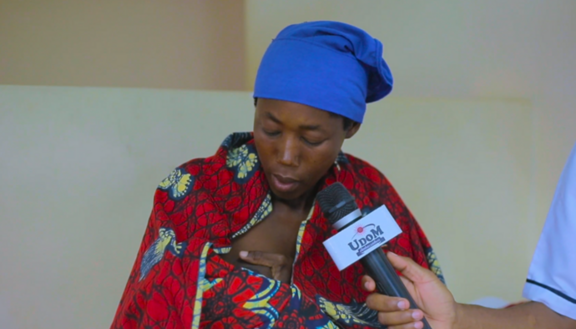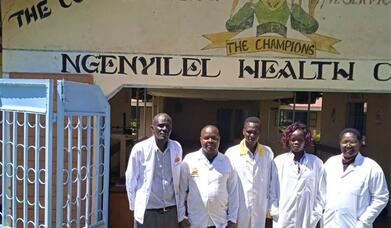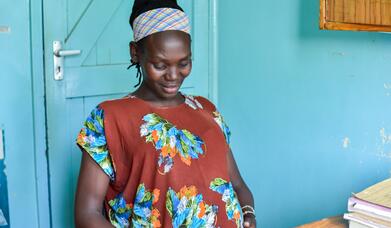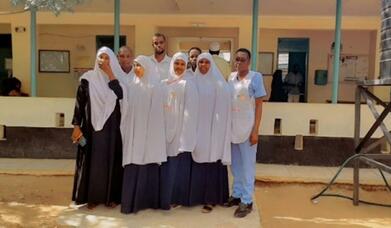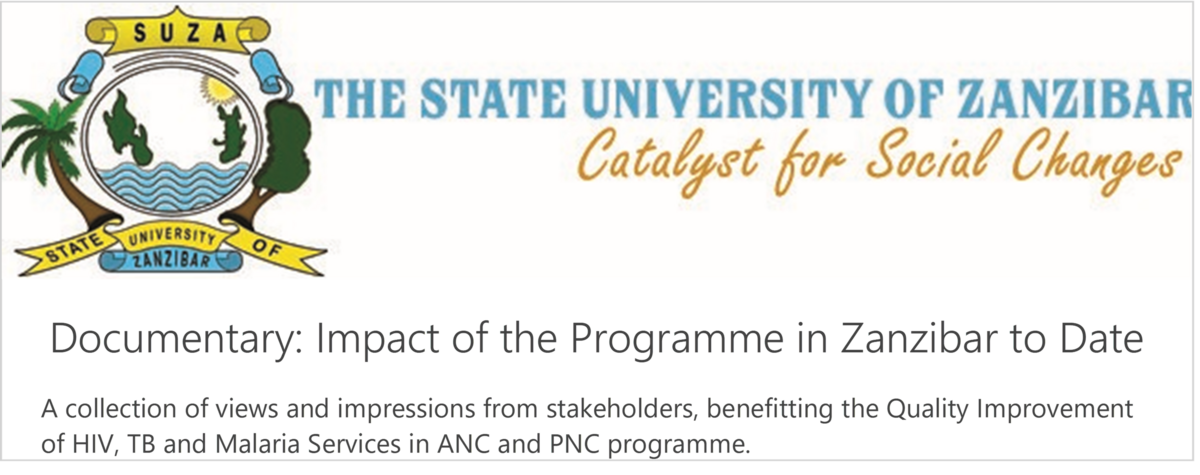Empowering Healthcare Workers in Maternal and Newborn Care - Impact Videos from our Implementing Partners in Kenya, Nigeria and Tanzania
-
Improving antenatal and postnatal care for better maternal and newborn health outcomes in Kenya
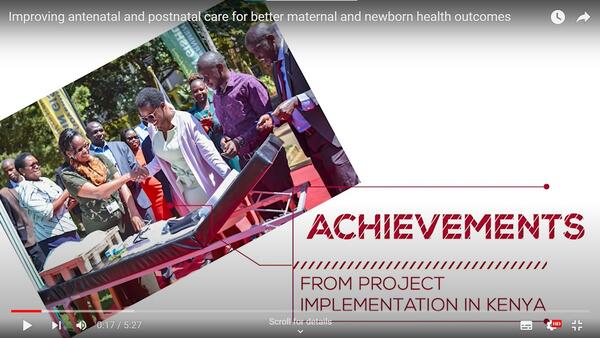
-
A Collaborative Approach to Improving Maternal and Newborn Health in Tanzania or Saving Lives
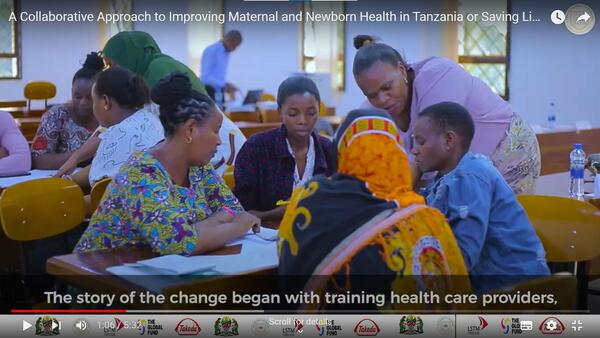
-
Empowering Health Workers: Nigeria's Positive Shift in Maternal & Newborn Care fuels Policy Change
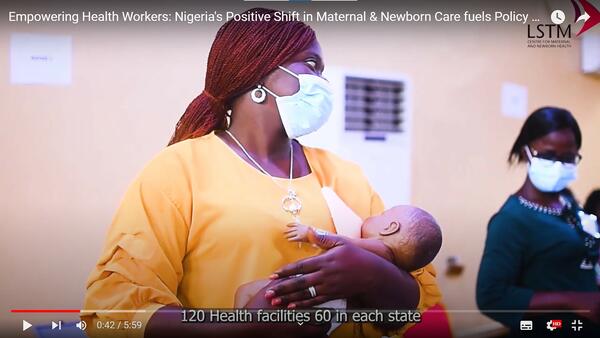
-
Zanzibar: Empowering Healthcare workers leading to healthier pregnancies and behavioural change
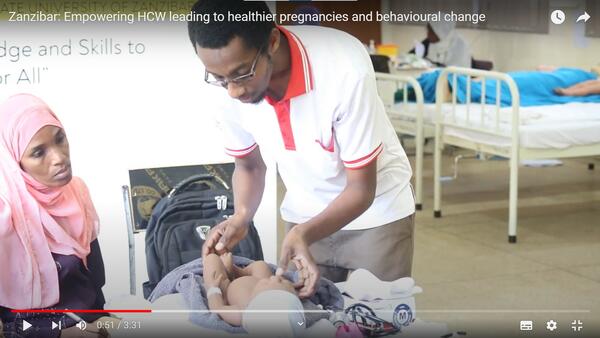
Success Story narrated by our Partners, the University of Dodoma
"I have come here for delivery. The doctors have received me well, and I have experienced quality services."
These were the joyous words of Ashura Iddi; her story is one of many heartwarming accounts from service users who have experienced the tangible impact of the ‘Quality Improvement for Integrated HIV, TB, and Malaria Services during Antenatal and Postnatal Care’ project. Ashura's soft but confident voice carries a quiet power. Resting at Kingale Health Centre in Mpwapwa Town Council of Dodoma in Tanzania with her healthy newborn, she personifies the transformation in maternal health services made possible by this innovative project.
From Counties Vihiga, Uasin Gishu and Garissa in Kenya
A Healthcare Professional's Inspiring Journey
From our partners the State University of Zanzibar
In a captivating narrative unfolding during a rigorous four-day face-to-face training on Quality Improvement of Integrated HIV, TB, and Malaria Services in Antenatal and Postnatal Care at the School of Health and Medical Sciences, State University of Zanzibar (SUZA), a remarkable story of resilience and commitment emerged.
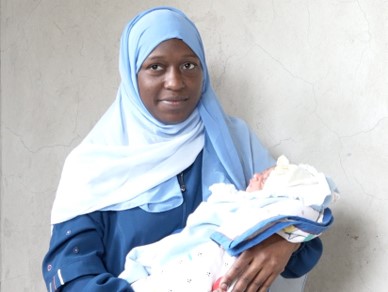
Ms Bimkubwa Hama Ali, a dedicated participant from Micheweni Hospital, Pemba, demonstrated extraordinary commitment throughout the training, smidst the challenges of being in the full term of her pregnancy. On the third day of the sessions, as Ms. Bimkubwa traveled home, she experienced labor pains. Undeterred, she safely made her way to the hospital, successfully delivering a healthy baby boy. This incredible occurrence not only highlighted Ms. Bimkubwa's determination, but also underscored the unwavering commitment of healthcare professionals to enhancing their skills for the betterment of community healthcare services.
This inspiring story stands as a testament to the indomitable spirit and passion for learning, exhibited by frontline healthcare workers, even under challenging circumstances. Ms. Bimkubwa's journey not only enriched her knowledge through the training but also welcomed a new life into the world, symbolizing the interconnectedness of dedication, education, and the profound impact of healthcare professionals on their communities.
From the States of Kaduna and Oyo in Nigeria
-
Antenatal and Postnatal Care Service Provider Perspective - Iliya Aishatu, registered nurse midwife

-
Antenatal and Postnatal Care Service Provider Perspective - Marcel Martha, registered nurse midwife

-
"In my opinion the training will reduce morbidity and mortality rates in the state ..."

-
"... the importance of screening for HIV, TB, Malaria and Syphilis during pregnancy."
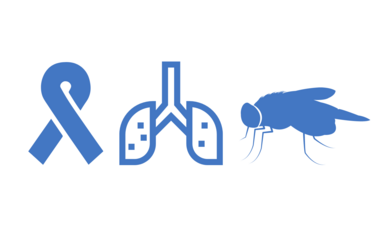
-
"One thing I like about this training is that it is coming at the time when Nigeria needs it the most."

An Impact Story - Quality Improvement of Integrated HIV, TB and Malaria services in Antenatal care (ANC) and Postnatal care (PNC) in Oyo state, Nigeria
Since 2020 LSTM has been working with the State Ministries of Health in Kaduna and Oyo and the State Primary Health Board in Kaduna (SPHCB) to improve maternal and child health by integrating quality HIV, TB, and malaria services in antenatal care (ANC) and postnatal care (PNC). The Global Fund programme with funding from Takeda Pharmaceuticals aims to strengthen the provision of services for mothers and babies, and by that contributing to improving the health outcomes in the states of Kaduna and Oyo.
In Oyo State over 400 healthcare providers have been trained to date in ANC and PNC which covers the physical, mental and social aspects of maternal and newborn health. The training focuses on evidence-based screening, therapeutic interventions and health promotion during and after pregnancy. It also supports healthcare providers regarding how they can provide respectful maternity care and screen for and manage domestic violence and depression during and after pregnancy. The programme has also trained 90 HCPs in Quality Improvement (QI) to help strengthen a culture of QI in ANC and PNC while integrating HIV, TB and Malaria. The QI training also builds capacity for standard-based (clinical) audit in ANC and PNC. To complement the capacity building the 60 focus healthcare facilities (HCF) in Oyo state received essential equipment and supplies that are essential for the delivery of the components of ANC and PNC including HIV, malaria and TB in line with national and international standards.
The strengthened services and the respectful care provided to the mothers and babies at the ANC and PNC clinics in the HCFs has contributed to the increase in women attending the PNC clinics. At the start of the programme in 2020, 8,000 women returned to healthcare facilities for PNC and currently there are 24,000 women returning for PNC. All women are offered screening for HIV & Malaria and intermittent preventative therapy (IPT) for Malaria which has increased from approximately 20,000 women receiving IPT to 48,000 women.
The programme in Oyo states continues with training of mentors who will work with healthcare providers to enhance their skills in areas such as assessment and recognition of danger signs in patients, provision of ANC and PNC, emergency obstetric and new born care, quality of care such as audit, using data to improve care, respectful care and respectful midwifery.
